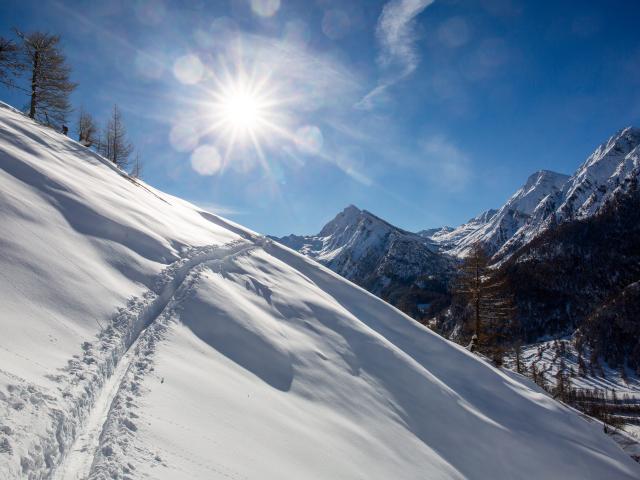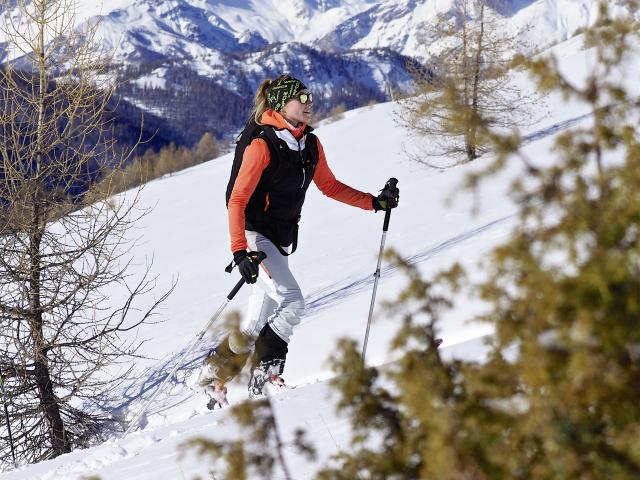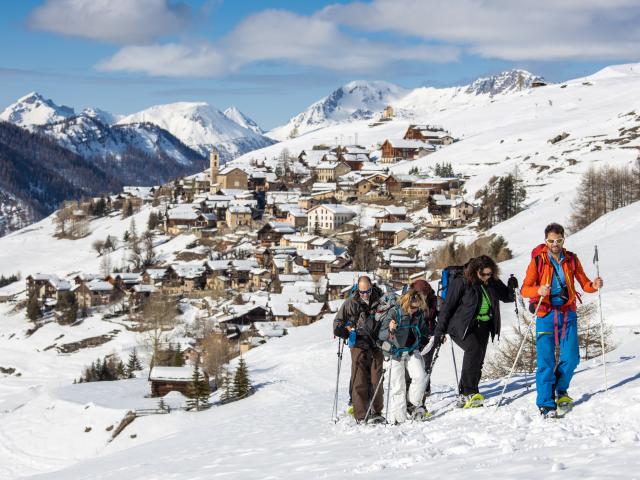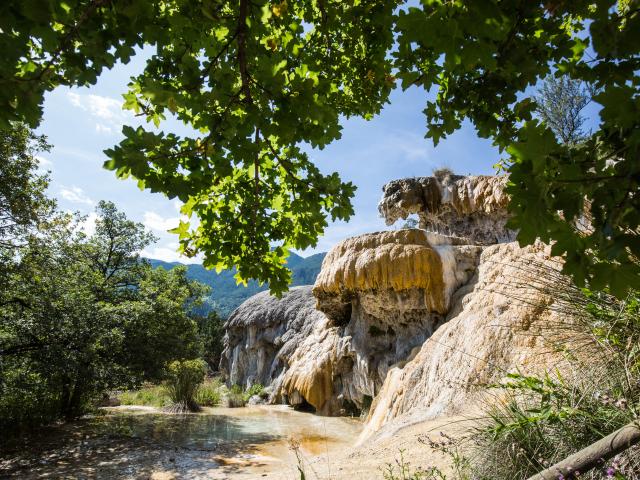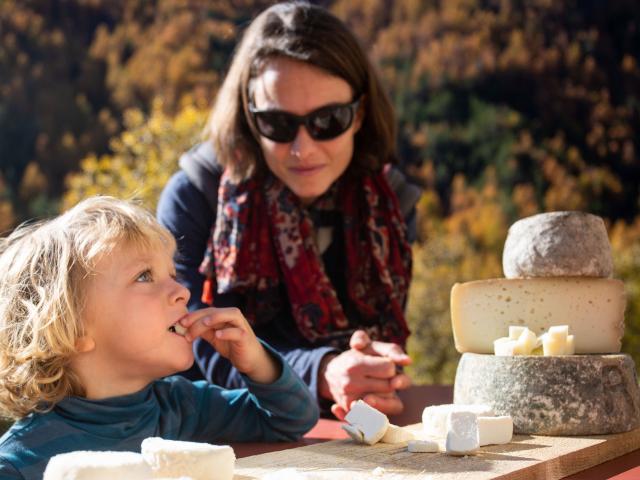Some people say the ski touring paradise is here, in a small corner of the European Alps. Everything is combined for entertainment and leisure : the number of cabins and mountain huts, the large range of rental equipment shops, the accessibility of high-altitude departures and not to mention the number of sunny days…it’s the perfect territory to skin your skis. It’s no coincidence that these village-resorts attract a strong community of ski enthusiasts all winter…

